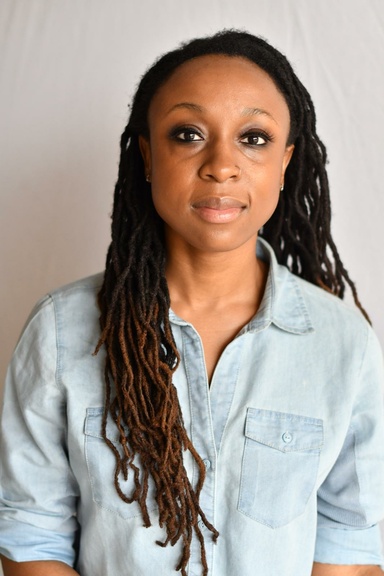
Mgbechi Erondu, MD, MFA, serves as a clinical assistant professor in Stanford Medicine’s Department of Anesthesiology, Perioperative, and Pain Medicine. A pediatric palliative care specialist, Erondu simultaneously completed a Master of Fine Arts at the Iowa Writers’ Workshop during her medical training at the University of Iowa Carver College of Medicine. We caught up with her to reflect on her career as a physician-writer.
How did you become interested in pediatric palliative care?
While I was rotating through critical care units, both on the pediatric and adult side, I found that there were a lot of conversations that were challenging to have with regard to death, dying, grief, and bereavement. I wanted to become more proficient in having those conversations.
I observed a lot of beautiful stories and a lot of love. I wanted to be part of making what is probably the most unimaginably difficult time in someone's life at least have some kind of joy, or lightness, or brightness, or beauty, or whatever it is that they seek. I'm trying my best to be a champion for that as they need me to be.
There's a lot of overlap between anesthesiology and palliative medicine, because in anesthesiology, almost by definition, we are experts in rendering the person unconscious, insensate, pain-free, and comfortable. Similarly, in palliative care, you're not just physically bringing comfort but also thinking about bringing comfort to families and relationships. In that way, it’s an extension of what we do as anesthesiologists.
How do you personally navigate the emotional challenges of being a doctor?
I think that's where the humanist and fiction writer parts of me come in. By virtue of my background and interest in storytelling, I am able to step outside myself or think outside of my own feelings to really center the family and patient’s experience.
Afterward, if I'm really struck by something, I might write some notes for things I felt, or things that were surprising, or inspiration for a story. That might be a way of bringing closure to what can be a very intense experience.
It’s really important to have good self-care in anesthesiology and in palliative medicine. Both fields are quite intense; you see life and death. For me, I think what helps is being surrounded by a community like my family, my friends, and having those people to turn to and other interests.
What is narrative medicine?
Narrative medicine as a field was developed and championed by Rita Charon [MD, PhD] at Columbia University, and a couple of her colleagues, in the 1990s and early 2000s in response to a call for a more humanistic approach to patient care. When we listen to a patient history and physical, it's very much like reading literature. So, it’s applying those narrative concepts to clinical inquiry and thinking critically about what we do as physicians.
Narrative medicine sessions include not just physicians but include clinicians from all walks of medicine; these are the folks who were feeling burned out, feeling like they were losing the attachment to the human aspect of what they were doing.
It is meant to address our relationship to our work, and in so doing, improve interactions with patients and also with our colleagues. The goal is that you do hopefully become a better clinician because you are paying attention in a deeper way to what someone is telling you, and you're also more open to nuance, uncertainty, conflict, or things that are unexpected, like you are when you read fiction or poetry.
Why do the humanities matter in medicine?
The hard sciences, while they have helped us to advance the technology by which we treat people, are not enough. When we think about what it means to suffer, it is so multifactorial, and it has a lot to do with the very things that make us feel human: our profession, our ability to experience joy, our interests, our relationships, our families. It's hard to teach that in a math class. But it's maybe a bit easier to teach that in an art class, or in drama.
I think to make us better, more well-rounded physicians, it's important to have a better and more well-rounded education. And then there have been studies that have shown that it does make us happier, less burned out, helps us provide better patient care, and helps us relate better to our colleagues.
What advice would you give to an incoming medical student interested in a path like yours?
Be true to your mission statement and try not to lose sight of why you're doing this work. Even when you're studying for whatever exam it is, remind yourself that you are meant to be a physician. If your goal is to become a physician, and if your goal is to care for people, hold tight to that.
I think people can feel discouraged when they are coming from nontraditional paths. Having good mentors and trying to seek out people who have your back and keeping them close helps—and that does take work—or try to find someone who is following a path that you aspire to and try to make them someone that you can reach out to when you're feeling discouraged.
For me, what's helped the most is that the reason I'm doing this is because of my hope for humanity and the particular types of people I want to care for. Children are the most vulnerable among us. Through all of the difficult times and the frustrating interactions, I think it still feels worth it.
Also, I would let people know that it's OK when you decide to also want to prioritize your own humanity and take care of yourself. You don't need to be a hero; it's okay to cry, to be angry, to be frustrated. Make room for all the feelings that you have as you are doing this important work.